Baku and Hanoi reshape cooperation Old friends, new markets
Over the past years, Azerbaijan has actively diversified its trade geography, including exploring large markets in China, Southeast Asia, and the Asia-Pacific region. Among Azerbaijan’s important trade partners today is Vietnam: business cooperation gained new momentum in May of this year following the state visit to Azerbaijan by To Lam, General Secretary of the Central Committee of the Communist Party of Vietnam.
The two friendly countries reinforced these trends during the first meeting of the Azerbaijan-Vietnam Joint Business Council and business forum held on July 16 in Hanoi, as well as the third meeting of the Azerbaijan-Vietnam Intergovernmental Commission on Economic, Trade, Scientific, and Technical Cooperation.
Baku and Hanoi share long-standing friendly ties that have withstood the test of time during the most challenging years for both countries. Since the establishment of diplomatic relations in 1992, dialogue between Azerbaijan and Vietnam has steadily developed — with mutual visits of delegations at various levels, consistent support of each other’s initiatives at the United Nations, the Non-Aligned Movement, and on several other international platforms.
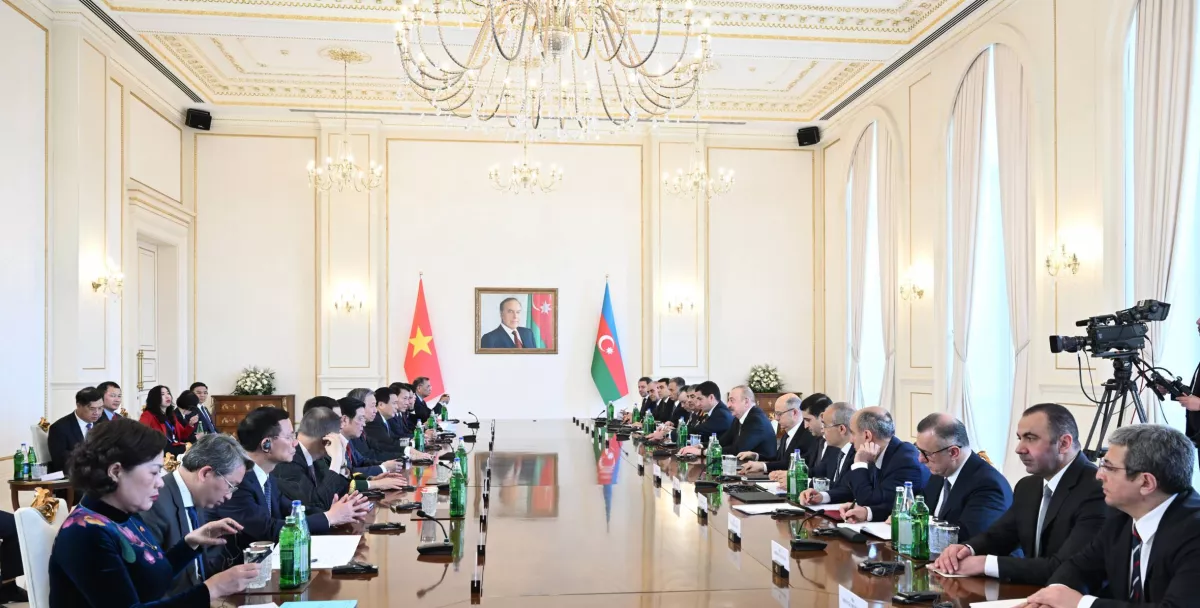
The state visit to our country last May by To Lam, General Secretary of the Central Committee of the Communist Party of Vietnam, was marked by the signing of a number of cooperation documents, including a Joint Statement on the Strategic Partnership between Azerbaijan and Vietnam. This entire groundwork laid a strong foundation for strengthening and further developing bilateral trade and economic ties, and most importantly, it means that support for joint business initiatives will continue in the future on an institutional basis, relying on state incentive mechanisms.
The Land of the Lotus — this is the poetic name for Vietnam, where this flower symbolises purity, spirituality, and serves as a symbol of Buddhism. While in the past this symbolism reflected the values of a predominantly agrarian country with a traditional way of life, today the blossoming lotus embodies the dynamics of industrial growth and rapid modernisation.
Modern Vietnam, with a population significantly exceeding one hundred million people, rightfully belongs to the group of new “Asian Tigers”: in 2024, the country’s GDP exceeded 476.3 billion dollars, with exports playing a dominant role in this rapidly developing nation. For example, in the distant year of 1986, the export of Vietnamese goods and services amounted to less than 7% of Vietnam’s GDP, whereas by 2021 this figure had risen to 93%.
Over the years, Vietnam has undergone three major investment booms and, by the end of 2024, had attracted $502.8 billion in foreign direct investment (FDI) across more than 42,000 projects. Leading companies from Japan, China, South Korea, Singapore, Taiwan, as well as from Europe and North America, operate in Vietnam assembling automobiles, electronics and electrical appliances, computer equipment and mobile devices, manufacturing branded clothing, footwear, and accessories. At the same time, the local agro-industrial sector has established mass exports of seafood, tropical fruits, rice, and more.
It is no surprise that global interest in the Land of the Lotus as a trade and economic partner has grown exponentially. In recent years, Azerbaijani businesses have also been steadily building mutually beneficial ties with the Vietnamese market. This dynamic is clearly reflected in statistics: in 2009, trade between the two countries stood at a relatively modest $12.6 million, while in 2022, during the global energy crisis, bilateral trade reached an all-time high of $702.5 million (according to the Vietnamese newspaper Vietnamplus), marking a more than 55-fold increase.
In recent years, Vietnam has supplied Azerbaijan with computers, smartphones, other electronics and components, as well as various agricultural products — including seafood, fruits, and canned goods. Another segment of imports includes fabrics, clothing, and accessories. Azerbaijan, in turn, primarily exports crude oil and petroleum products to Vietnam. However, in recent years, exports have expanded to include electrical and energy equipment, instrumentation products, as well as tobacco raw materials and food industry goods.
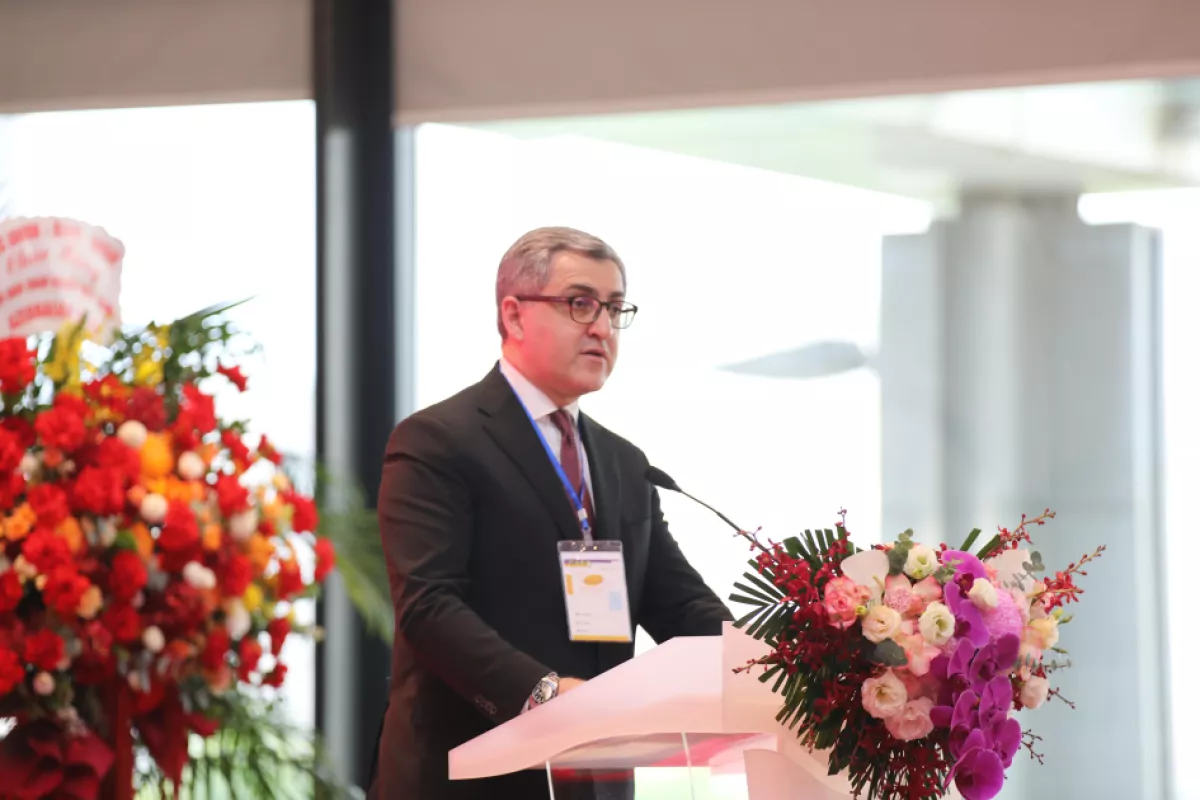
Unfortunately, the decline in global oil prices observed over the past two years, the global recession, and a series of crises in the Asian region have significantly dampened bilateral trade dynamics. However, from January to May of this year, there was an improvement in market conditions, which helped stimulate trade. As Yusif Abdullayev, Executive Director of the Azerbaijan Export and Investment Promotion Agency (AZPROMO), noted at the Azerbaijan-Vietnam Business Council meeting in Hanoi, the trade turnover between the two countries amounted to $58.4 million, which is 5.4% higher than during the same period last year.
Notably, given the strategic cooperation agreement, today Baku and Hanoi intend not only to increase trade turnover but also to expand the investment component and establish joint ventures (JVs). Genuine interest in the prospects for implementing joint projects was demonstrated by the participants of the council’s first meeting — 20 Azerbaijani and more than fifty Vietnamese businessmen representing the oil and gas, agriculture, food, textile, tourism, and other economic sectors.
The head of AZPROMO reported that the textile industry is of particular interest, and for this reason, virtual meetings have already been organised between Azerbaijani and Vietnamese companies regarding the export of cotton products and other cooperation in this field.
“Among the promising export items are cotton fibre, primary polyethylene, unprocessed aluminium and its alloys, chocolate and chocolate products, as well as alcoholic beverages,” noted Yusif Abdullayev, emphasising that the event in Hanoi, organised by the Vietnam National Association of Entrepreneurship (VINEN), helps unite business representatives and establish connections.
The productivity of the Business Council and Business Forum, which continued with panel discussions and bilateral (B2B) meetings, is evidenced by the documents signed during these events. These include cooperation agreements between VINEN and AZPROMO, Phong Phu Corporation and GP Cotton Holdings, Tuong Vu JSC CO and Fresh Meat, ANC Group and 7 Center, as well as a memorandum between the State Agency for Alternative and Renewable Energy Sources of Azerbaijan (BOEMDA) under the Ministry of Energy of Azerbaijan and the Vietnamese joint-stock company ROX Group.
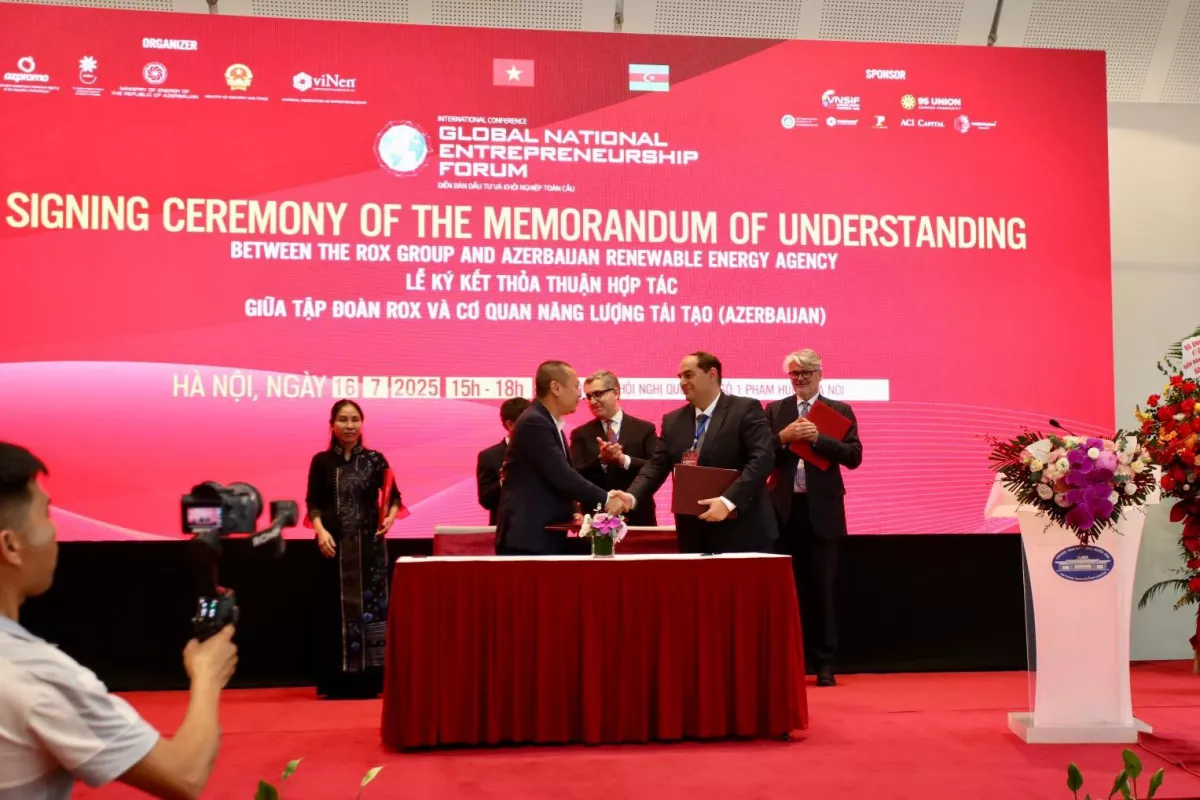
In particular, the Memorandum of Understanding on cooperation in the field of renewable energy (RE) between BOEMDA and ROX Group provides for collaboration in areas such as energy storage systems, autonomous and grid-connected solar power systems, onshore and offshore wind energy, and the production of “green” hydrogen and ammonia.
“In Hanoi, we held fruitful discussions with Vietnam’s Minister of Industry and Trade, Mr. Nguyen Hong Dien, in an atmosphere of mutual trust and friendship, focusing on the development of bilateral relations across all areas. The 3rd meeting of the Azerbaijan–Vietnam Intergovernmental Commission, which we co-chaired, concluded successfully with the adoption of an Action Plan aimed at strengthening our trade and economic cooperation on the basis of strategic partnership. The Plan outlines the implementation of 58 measures across 17 priority areas for the period of 2025–2027,” wrote Parviz Shahbazov, Azerbaijan’s Minister of Energy and co-chair of the Commission, on social media the day before.
According to him, for Vietnamese companies, Azerbaijan is not only a domestic market of 10 million people but also a strategic gateway to the markets of the South Caucasus, Central Asia, and Europe. At the same time, for Azerbaijani companies, Vietnam represents a rapidly developing, innovation-friendly, and strategically important Asian market.
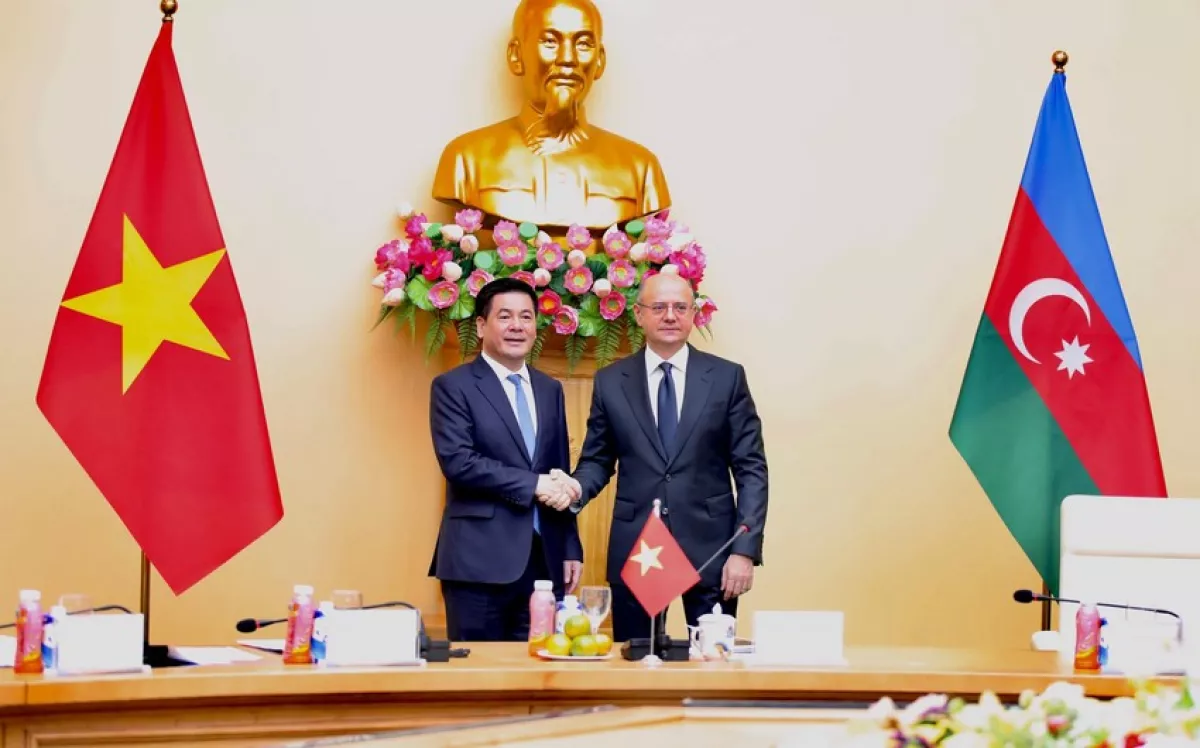
“Entrepreneurs were invited to engage in information exchange on the investment climate in Azerbaijan and Vietnam, economic zones, industrial parks, high technologies, agriculture, hydrocarbons, and Renewable Energy; to organize mutual business missions; to take advantage of existing opportunities; to establish joint ventures; and to invest in specific projects,” emphasised Minister Parviz Shahbazov.
During the speeches at the Intergovernmental Commission meeting, the significant potential for cooperation in the defence industry and agriculture sectors was highlighted. Special attention was also given to the activities of SOCAR Trading in the Vietnamese market as one of the leading suppliers in the spot market, its involvement in crude oil deliveries, and international sales of Vietnamese oil, which is one of the key areas of bilateral cooperation.
Another promising direction identified is cooperation in transport and logistics, including collaboration within the Middle Corridor, North–South, and East–West routes, aimed at ensuring the efficient use of transit opportunities for both countries. Notably, last year the Azerbaijani airline Silk Way Airlines opened a representative office in Vietnam, and the launch of direct cargo flights is expected soon. At the same time, the development plans of Azerbaijan Airlines include passenger flights on the Baku–Hanoi route. Following the third meeting of the Intergovernmental Commission, a protocol was signed and an action plan for 2025–2027 was adopted.
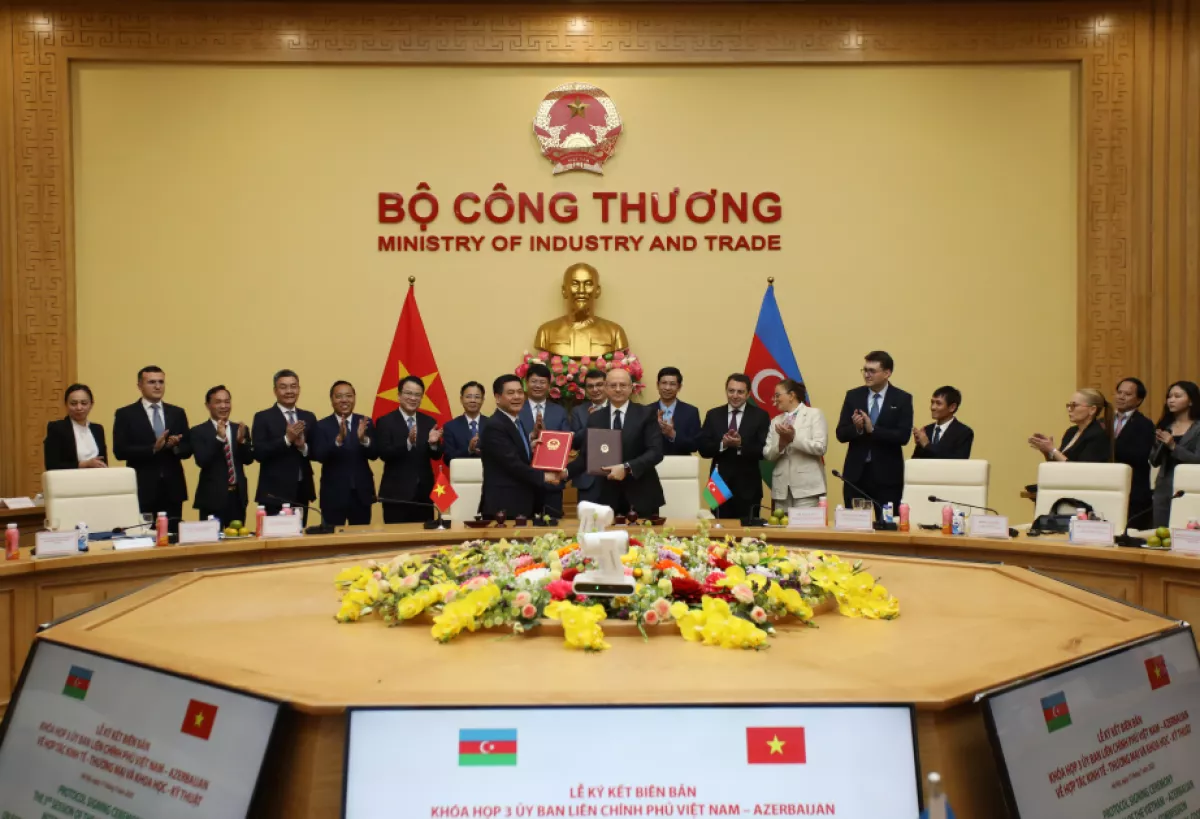
Summing up the results of the Intergovernmental Commission meeting, Vietnam’s Minister of Industry and Trade noted that Vietnam—with the third-largest economy in Southeast Asia, a population of 115 million, and access to a market of 600 million consumers under free trade agreements—offers vast opportunities for cooperation with Azerbaijan.
“Our political and diplomatic relations are stable, and cooperation in the energy sector is of a strategic nature. There is strong political will and decisive support at the leadership level to deepen this bilateral engagement,” emphasised Nguyen Hong Dien.








